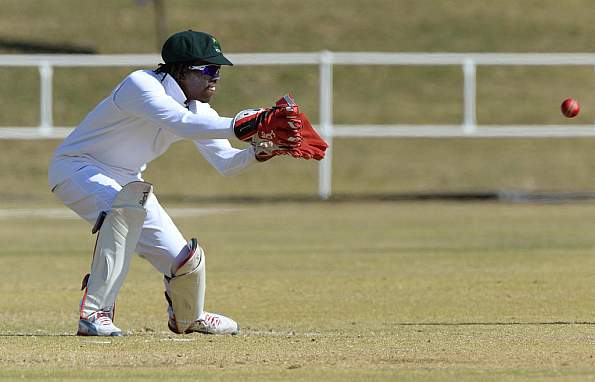
Cricket South Africa has come down heavily on four of its players – Jean Symes, Thami Tsolekile, Ethy Mbhalathi and Pumelela Matshikwe – handing out lengthy bans for each for their alleged involvement in match-fixing.
According to an official release issued by CSA, former national team wicketkeeper Tsolekile has been slapped with a 12-year ban for several counts, including contriving to fix a match or matches in Ram Slam T20 in 2015, not providing full details of the matters to the CSA and even obstructing or delaying the investigation by destroying relevant evidence.
The pair of Mbhalathi and Matshikwe – part of the Titans and Lions respectively – have been given bans of 10 years each for taking payment to fix one or more matches during the same edition of the T20 tournament in South Africa and failing to provide complete information to CSA.
Symes, an all-rounder who played for Lions, will serve a seven-year ban for failing to disclose to the board about a payment which he knew or ought to have known was given to him to procure a breach of the Code
All the four players have accepted the bans, which are active from August 1.
“Whilst there has been no evidence to suggest that an actual fix in any match was carried out, these players all participated in material discussions about match fixing. In fact, they all went further and accepted, or agreed to accept in the future, sums of money which they knew or ought to have known was given to them to partake in activity that would amount to a breach of the Code, or bring the game into disrepute,” Haroon Lorgat, the chief executive of CSA, said on Monday (August 8).
“Our attitude towards any form of corruption is clear and hence why we have imposed such firm sanctions. To their credit, all of these players eventually admitted their misconduct and co-operated with the investigators. They have also shown remorse for their actions. Importantly, each of them has indicated a willingness to engage in anti-corruption education to assist us to prevent this kind of conduct in the future,” he added.

















